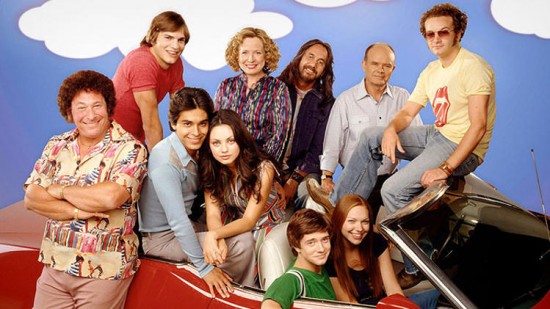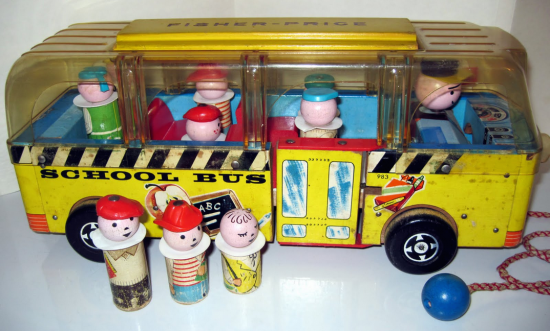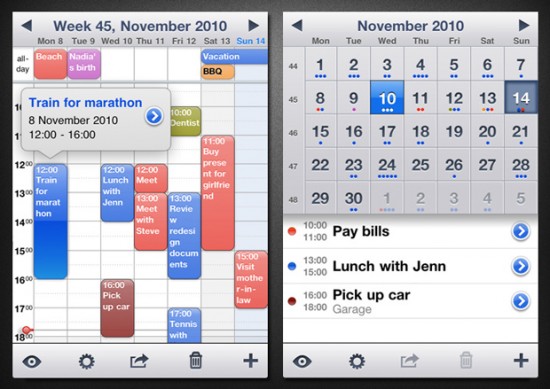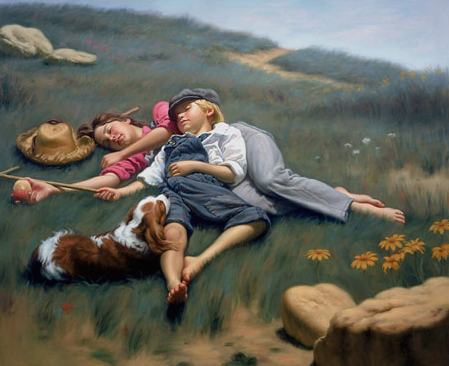The Good Old Days: When Did Back to School Get So Complicated
Recently, blogger Victoria Fedden wrote an entertaining post comparing the Back-To-School rituals of the 70’s to today’s yearly retail pilgrimages.
The Seventies Knew What They Were Doing
In the Seventies, she reminisced, moms descended on their one local Sears store, pragmatically picked out one pair of corduroys and a t-shirt for each kid, and made Bologna sandwich lunches, assembly-line-style, on a Formica counter-top.
The school supply list, she fondly remembers, involved a few composition notebooks and a pack of No. 2 pencils. Simple.
The Mess We’re In Now
Then Victoria moves to today, speaking with a little more tongue in cheek. Moms rack up thousands in credit card debt acquiring whole new Back-To-School wardrobes, she says. They custom-order monogrammed backpacks made from all natural materials and carefully dice organic, gluten-free lunches into Bento boxes.
Not to mention school supplies have monsooned into a 3-page list including everything from electron microcscopes to apps for their school-assigned tablets.
She’s right, I think to myself as I red-wobbly-cart my way through Target, checking off supplies that go well beyond my kindergartener’s pencil box: Kleenex, wipes, hand sanitizer, packages of stickers, I could go on…
We Can Relate, Ay?
And this, of course, is why the Back-To-School post went over so well. Because as they absorbed her words, every parent who read them felt the wit and tension ring true inside them.
Some things have gotten laughably complicated. Didn’t things used to be simpler?
And underlying that musing, a related question is implied: Didn’t some things used to be BETTER?
The subtle, sometimes fleeting worry goes far beyond school supplies. Life–how we shop, how we live, how we raise our kids, how we relate to neighbors, ALL OF IT–has changed.
It is still changing. It will always be changing.
Which raises the question: As the world evolves, how do we make sure we’re not losing anything important?
My Blogging Drawing Board
If you’ve read About My Blog, you know how easily I get HUNG UP on this topic, especially when it comes to changing social norms (friendships, relationships, community behavior):
Maybe it’s the rise of big box stores or the loss of front porch America. Maybe it’s the slow-extinction of elevator small talk as people ritually check their phones between floors.
Life seems so rushed; so riddled with opportunities for multi-tasking. We can’t even enjoy a good stoplight, what with all those emails screaming to be answered.
Connectedness is slipping through our texting, tweeting fingers.
But even though we’re perhaps proudly efficient and oh-so-happily chained to our gadgets, we’re secretly not 100% comfortable with how things are changing.
We have a sneaking suspicion that we were intended to experience life more slowly… to take the time to love bigger, to cherish the people around us, to relate to others more deeply.
We’re afraid we’re missing something.
[Tweet “We have a sneaking suspicion we were intended to experience life more slowly. http://bit.ly/1q53sm6 “]
A Little Swept Away
Even though we are adult people, bona fide voters, with our corresponding soapboxes, even the most assertive among us sometimes still feel a little bit swept away by the pace of this culture.
We do our best to hodge-podge together our own version of sanity and happiness as society evolves, even if sometimes we feel–deep down–that our raft will still be pulled wherever the cultural currents takes us.
I don’t know about you, but on my smartest and most well days, I see the faulty logic in this sort of subconscious social surrender. I refuse to believe God has destined us to be distracted, disconnected floaters in a culture that sweeps us away from civility and connectedness.
Something inside me insists that humans are designed for good, sweet, fully-alive experiences–like noticing the people around us, looking them in the eyes, and experiencing faith and gratitude with them. That we are spiritually wired for companionship; to feel, to reach toward others, to grab on, to slip, to fall short, and to reach again.
I tell you, friends: No matter how the world evolves, this will still be true.
Over the past few years, I’ve become a bit of a relationship enthusiast. I’m not a prodigy–one of those life-of-the-party, lampshade-on-the-head, animated-story-tellers–who naturally attracts crowds to her side. But I’ve learned enough while immersing myself in the subject, and while trying to live well by others, that I’ve become convinced we can do relationships better.
And that faith should take us deeper into the experience of friendship…and show us more of God.
So I don’t know what kind of PTO protest you should stage about the ten-mile long school supply list. [[Read Victoria’s killer Back-To-School post here.]] But if a few of us pull together, if we invest in faith and friendship, if we love our Samaritan neighbor, and take care of the tribes around us, it stands to reason that our world (the one that God SO loves) will be better loved too.
I’m going to spend the next few Mondays *and probably the next few after that* grappling with today’s social norms and thinking about the way friendship can deepen both our daily experience and our faith. This also takes me in the direction of blogging about what is uniquely me, at the stuff that burns hot at the center of who I am…which seems like a logical way to go on one’s blog, ay?
What do you say? Do any of these concerns appear on your radar? Would you be interested in thinking about this with me? Feel free to leave your comments below.
Photo sources: Seventies, Bus, iPhone, Friendship






Mike October 8, 2014 (7:14 pm)
I laughed but I admit whenever I pay for back-to-school clothes shopping, I get really we-used-to-walk-uphill-both-ways about it.
Every generation has their own unique definition of what good old days means to them, don’t you think?